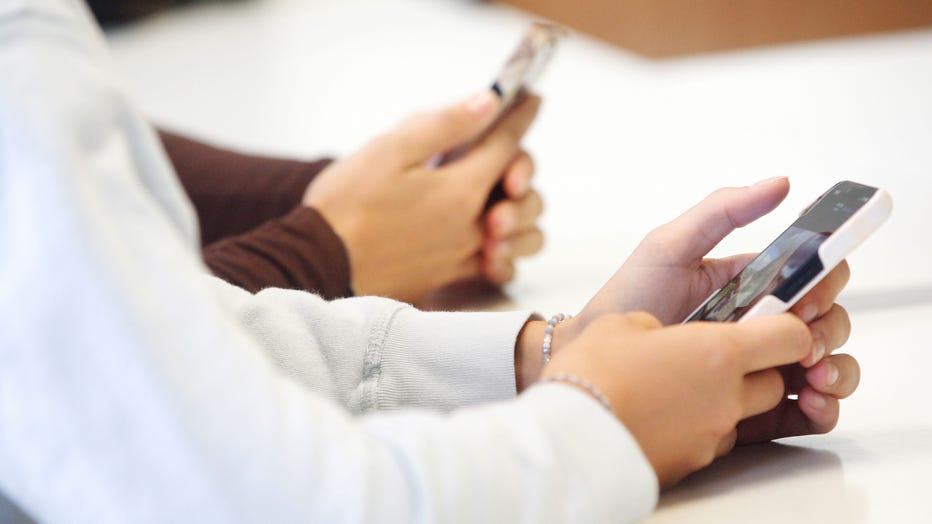Teens turning to TikTok to self-diagnose mental health issues

Teens use social media to self-diagnose issues
Dr. Aja Chavez, Executive Director of Adolescent Services at Mission Prep, joins LiveNOW's Austin Westfall to examine why teens are using social media to self-diagnose mental health issues.
Young people are turning to social media to research mental health conditions and are self-diagnosing themselves at an increasing rate, a new study found.
Education Week’s Research Center found staggering results on this trend:
- 55% of high school students said they’ve used social media to diagnose their own mental health conditions at least once
- 65% of district and school officials said they’ve seen this phenomenon in their classrooms
Aja Chavez, the Executive Director of Adolescent Services at Mission Prep, a California-based facility that provides mental health treatment for teens, spoke with LiveNOW from FOX about the behavior.
What does it mean to self-diagnosis?
"Self-diagnosing is hearing about a variety of diagnoses and relating with them, identifying with some of these symptoms that are associated with the diagnosis and saying, ‘I think I might also have this,’ and then adopting and taking that label on for themselves and then essentially reporting to others that they now believe that they have this diagnosis," Chavez explained.
A medical professional is never involved in the process.
RELATED: Study suggests mental health issues in teen boys often go undetected
Shaping their identity

FILE - Students use their cell phones in class. (Photo by Roland Weihrauch via Getty Images)
The teen years are our most formative, and Chavez thinks the validation or understanding that these videos can provide – whether accurate or not – is appealing to teens who are struggling to find their identity.
"Adolescence is a period of identity formation and, really, this desire to want to feel a sense of belonging and connection," she said. "Our adolescents are in deep struggle. And so in the self-diagnosis process, there really is this seeking of understanding, of trying to find solution."
"Where it can really start to get tricky and maybe even turn into this negative aspect is when there's this labeling of, ‘I now have this diagnosis or this process’ and then living in the diagnosis."
To gauge if this may be happening, she said parents or school authorities can watch for things like heightened behaviors around certain symptoms or attempts at self-medication.
RELATED: Most US teens feel peaceful without smartphones, study finds
Professional intervention
A medical diagnosis is much more nuanced than a self-diagnosis, Chavez said.
She believes creators on social media, specifically TikTok, are genuinely trying to be helpful in sharing their experiences, but the thoroughness can’t be matched with that of a professional.
"You're reading off of maybe a list of 5 or 6 different symptoms, as opposed to a thorough diagnosis, which might be an hour long questionnaire, trying to really dive in and gain a deep understanding of how these struggles are showing up in someone's life," she said.
Not to mention, the self-diagnosis can be incorrect.
"At Mission Prep, we see this regularly … borderline personality disorder, bipolar disorder, those are two that we see often. I would say two other very prevalent ones are autism spectrum disorder and obsessive-compulsive disorder," she said.
"We hear constantly clients that are coming in that are saying, ‘I think I might have autism,’ or, ‘I think that it might be obsessive-compulsive disorder.’ And there might be some truth to that. Most of the time, their symptoms are not to the point where they would be diagnosed with autism, OCD.
"For borderline personality disorder, we typically are not diagnosing someone until they’re over the age of 18.
"Bipolar is a very, very nuanced diagnosis. There’s a lot more that goes into (it than) maybe just engaging with a five-minute TikTok," she said.
She admits one benefit from social media is that people are talking much more openly about being in therapy and accessing care.
"I believe we all probably know someone who is engaging in therapy," she said, adding that an individual therapist is a great place to start for those who want to focus on their mental health.
This story was reported from Detroit.

